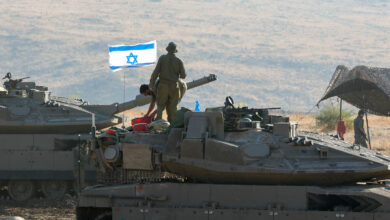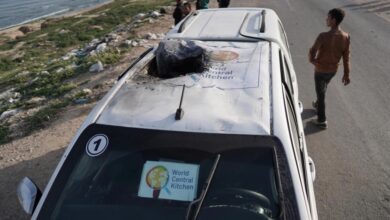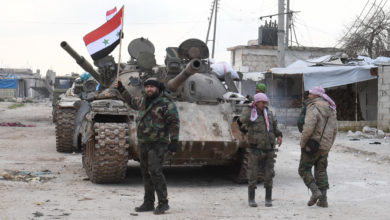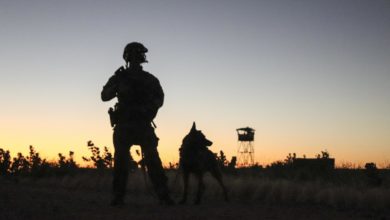The number of civilian deaths at hands of Boko Haram fell sharply in Niger last year. According to a report by the United Nations Office for the Coordination of Humanitarian Affairs, a total of 141 civilians were killed in the country in 2017, compared to 227 people in 2016 and 214 in 2015.
However, the improved statistics are not the result of a more stable situation on the ground.
“The decrease can be explained by the fact that many of the people who were living in villages bordering northern Nigeria – that were targeted by repeated attacks 2015 and 2016 – have moved to safer areas,” OCHA spokesperson Katy Thiam told The Defense Post.
“Also the military interventions have been intensified to increase the security context of localities around the Lake Chad Basin. Despite all these efforts, sporadic attacks affecting civilians continue to be reported in the affected areas,” she added.
Boko Haram launched an insurgency in northeast Nigeria in 2009, and in 2015 it spilled into Niger. The Diffa administrative region in the southeast of the country, which borders Nigeria and Chad, bore the brunt of the attacks. Gueskerou was the worst-hit district in terms of the number of assaults, while the highest number of victims was recorded in Kabalewa.
Attacks have also affected the country’s other neighbors, Chad and Cameroon. To date, the conflict has claimed more than 20,000 lives, and more than 2.3 million people have been displaced in the Lake Chad region, according to the U.N.

In the Lake Chad Basin region overall, violent incidents and fatalities remain high and peaked towards the end of 2017.
Romain Desclous, the spokesperson for the U.N. Refugee Agency (UNHCR) in West Africa, told The Defense Post that last year, security conditions improved marginally only in Niger with less frequent Boko Haram incursions inland, while violent and deadly attacks continued in the region.
“With 2018 marking the 5th year of the Nigerian refugee crisis, with 208,000 Nigerian refugees living in and outside camps in Cameroon, Niger and Chad, the Lake Chad basin, which is affected by Boko Haram insurgency, remains a region of massive displacements: beyond the Nigerian refugees (a trend that is increasing), there are over 2,240,000 internally displaced people in the region – i.e. they have not crossed borders,” Desclous said.
“As a result, counter-insurgency operations carried on by the national military forces and the Multinational Joint Task Force have contributed to displacement. In areas where the security situation improved, humanitarian access did as well.”
Thanks to UN Humanitarian Air Services, humanitarian workers can reach emergencies and remote areas safely and timely all across Niger! Read the story about UNHAS worldwide ? https://t.co/PC4S1ozeBE thanks to the support of @eu_echo @DFID_UK @USAID ! pic.twitter.com/Jx1h9OCQx5
— PAM Niger (@WFP_Niger) January 23, 2018
OCHA Public Information Officer Otto Bakano told The Defense Post that even though food security has recently slightly improved in the region due to stepped up humanitarian assistance and harvests from last year’s season, around 4.5 million people are currently food insecure – the number fell from 7.2 million earlier in 2017.
“Nigeria has recorded the highest decline, with 2.6 million people severely food insecure from 5.2 million recorded in June – August 2017,” Bakano said, noting, however, that “civilians remain exposed to violence, abuse and exploitation, especially girls and women due to the persistent hostilities, prolonged displacement and loss of livelihoods.”
The region’s humanitarian needs are projected to stay high. According to the U.N., 419,000 people in the conflict-hit Diffa region of Niger will need assistance in 2018, up from 408,000 last year.
“The response budget has also increased to $163 million from $142 million. Nigeria’s 2018 humanitarian response budget stands at $1.05 billion, same as 2017 – a highlight of the continued severity of the crisis,” Bakano said, underscoring that millions of people are still living in the most acute fragility.
With reporting from AFP











One Comment